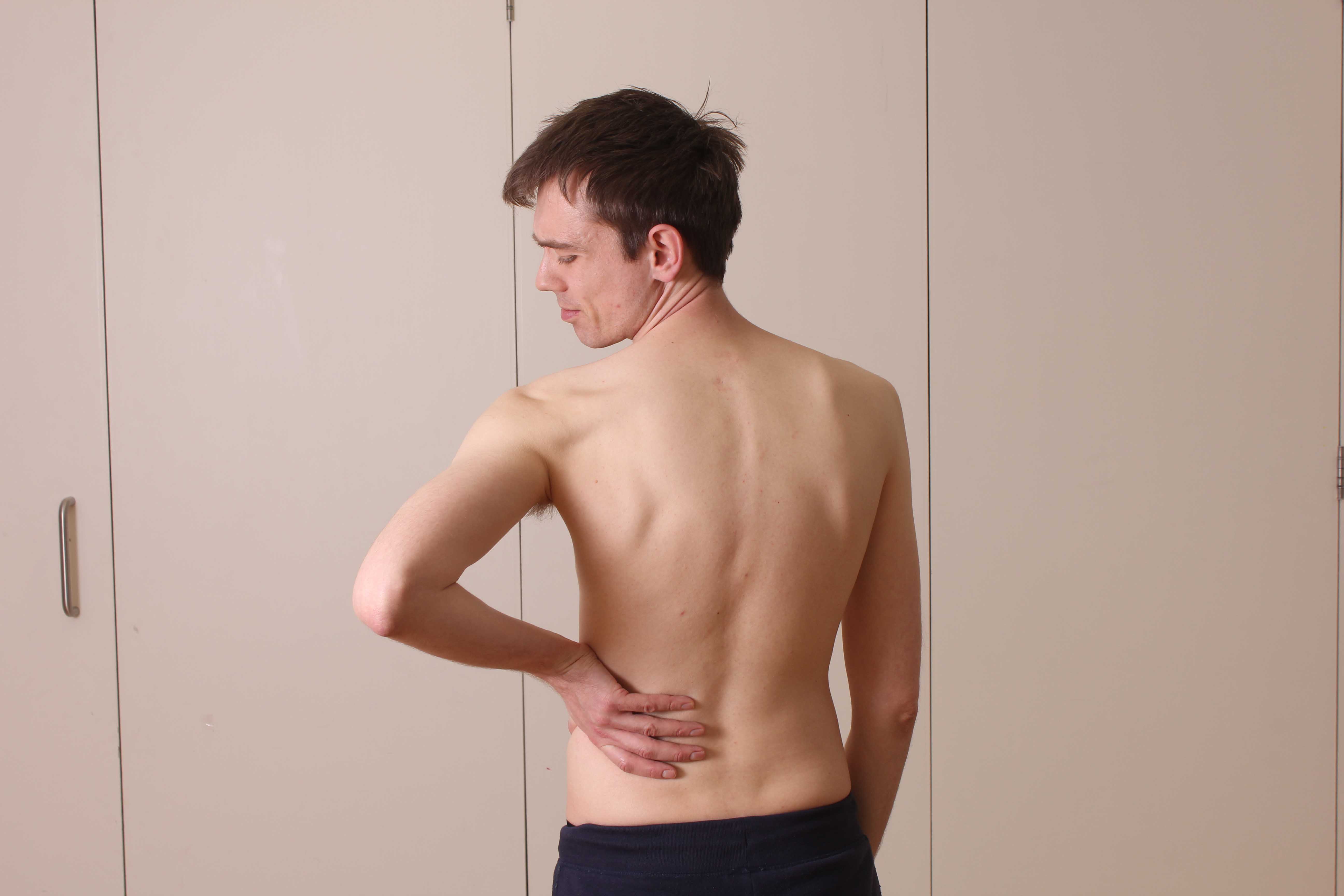What is spinal stenosis?
Your spine is made up of a series of bones called your vertebrae. Each vertebrae is separated by a disc. The discs have two main layers, an outer thicker layer and an inner liquid like material. Intervertebral disc prolapse is when the inner liquid like material starts to leak out of the disc.
Spinal stenosis is a condition that results in the narrowing of your spinal canal and/or foramen. This narrowing causes excess pressure on the spinal cord and/or your nerve roots.
This condition is more common with age.
 Above: Symptoms related to spinal stenosis can be treated through specific exercise programmes, speak to one of our Physiotherapists to find out more.
Above: Symptoms related to spinal stenosis can be treated through specific exercise programmes, speak to one of our Physiotherapists to find out more.What causes spinal stenosis?
Spinal stenosis is can be the result of:
- Degenerative changes in your spine: ligament thickening, excess bony spur growth ??? e.g. from osteoarthritis
- Spinal injury: from car crashes or impact sports
- Being born with spinal canal or foramen narrowing.
What are the symptoms of spinal stenosis?
As this injury has nerve involvement, some symptoms include:
- Numbness, pins and needles or altered sensation
- Muscle weakness
- Cramping
- Pain
These may be present in your back, arms, or legs.
These symptoms may be worsened by standing walking or bending due to positions causing further narrowing
These symptoms can be relieved by sitting and bending forward as this opens up your spinal column and relieves the pressure.
How is spinal stenosis Diagnosed?
Our experienced physiotherapists can diagnose you with spinal stenosis based on findings from a comprehensive assessment, however a MRI or CT scan may be required to see the extent of your stenosis.
For further information about how Physiotherapy can help treat spinal stenosis, or to book yourself an appointment, please email office@liverpoolphysio.co.uk or ring us on 0151 558 0077.
 Above: Spinal stenosis occurs when the nerves of the lower back become compressed
Above: Spinal stenosis occurs when the nerves of the lower back become compressed What would a physiotherapy assessment for spinal stenosis involve?
At Liverpool Physio your first appointment with us will consist of a detailed assessment by one of our caring physiotherapists.
For more information about how Physiotherapy can help treat intervertebral disc prolapse, or to book yourself an appointment, please email office@liverpoolphysio.co.uk or Call 0151 558 0077
How is intervertebral disc prolapse Diagnosed?
Subjective
A discussion between you and our physiotherapist to gain information on when your symptoms started, and how they are causing you problems in your active daily lifestyle.
Objective
Taking into consideration your current pain, an assessment of your range of movement, sensations, muscle strength and ability to carry out functional tasks such as walking, transferring from lying to sitting and sitting to standing, reaching and more.
What would physiotherapy treatment for spinal stenosis involve?
Some examples of what your follow up treatment sessions might include are:
- Exercises
- Electrotherapy
- Ice treatments
- Soft tissue massage
- Heat treatments
- Strengthening
- Postural advice
- Advice on seeing your doctor for pain relief
- Stretching
- Hydrotherapy
At Liverpool Physio, we pride on making every treatment session personal to your needs. Our physiotherapists will ensure your treatment meets your aims.
How can I arrange a physiotherapy assessment for spinal stenosis?
If you have altered sensation in your arms, leg or back, are experiencing pain or just feel your back is not as it usually is, one of our experienced physiotherapists will be happy to see you for an assessment.
You can contact us directly to arrange an assessment and we can advise you if further treatment is recommended, or give you details on self-management for minor cases. To arrange an appointment please email office@liverpoolphysio.co.uk or call 0151 558 0077.
Summary
Spinal stenosis is a condition that causes excess pressure on the nerves in your back and can cause you pain and altered sensation.
At Liverpool Physio we want to ensure you get the best treatment for your injury and we will use a range of treatments that may include exercises, electrotherapy, and more to ensure you are relieved of your symptoms.
For further information about how Physiotherapy can help treat Spinal stenosis, or to book yourself an appointment, please email office@liverpoolphysio.co.uk or ring us on0151 558 0077.
↑ Back to top
















